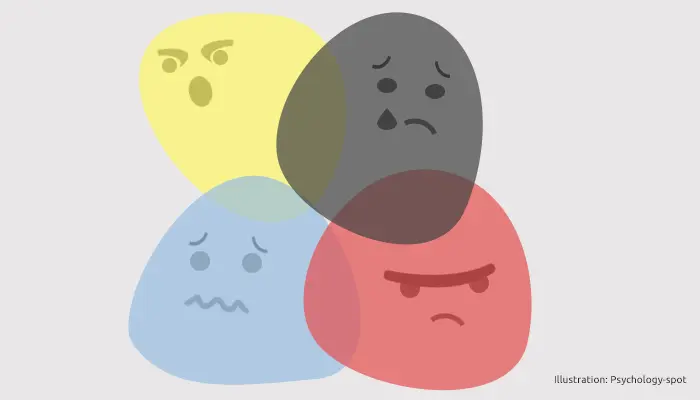
Anxiety, sadness, shame, guilt, fear, anguish, anger and resentment are some of the “negative” emotions that we usually experience in some moments of our lives. When we are assaulted, it is difficult to think clearly dealing with emotional pain and get out of that state. Often those emotions and feelings drag us into a loop that makes us feel even worse or occurs a real emotional hijacking. Should we try to fight or just accept them?
Researchers from the University of Toronto and California raised the same question and analyzed whether dealing with emotional pain, the acceptance of negative emotions, an idea that proposes Buddhism and that Psychology is now applying, is actually associated with a better mental health and a decrease in negative states over time.
Acceptance protects us from stress
The study involved more than 1.381 people, who underwent different experiments in which were involved negative emotions. The psychologists discovered that accepting negative experiences is related to a lower level of anxiety and depression, as well as a greater sense of well-being and satisfaction with life.
In one of the experiments, the researchers measured the general level of people’s acceptance of their negative thoughts and emotions. Then they exposed them to different stressful situations.
They found that those who had developed a higher level of acceptance experienced lower levels of stress and fewer negative feelings, which means that acceptance has a protective role against stress and adverse situations. The simple fact of accepting what happens, instead of denying it, diminishes its negative impact. Sigmund Freud had already said: “Repressed emotions never die, they are buried alive and will come out in the worst way”.
Acceptance as a way to a more satisfying life
In another experiment, the psychologists tracked 200 of these people over a period of six months to see how acceptance influenced their day to day. They found that a high level of acceptance was related to better mental health, less negative emotions over time and a greater satisfaction with life.
The acceptance referred by these researchers is not a passive attitude through which we become victims of circumstances or emotions, but the ability to experience our emotional states without judging them and, therefore, without feeling guilty or ashamed. It is about taking note of our thoughts and emotions to let them go, so that we can minimize their negative influence.
Thus we manage to escape from a double psychological attachment, or in the words of Alan Watts: “To grieve because one is afflicted and fear the fear”. When we accept our thoughts and emotions we do not generate more anxiety, fear or anguish.
Actually, that acceptance is rather a kind of mental detachment. Chinese philosopher Chuang-tzu explained it very well: “The perfect man uses his mind like a mirror. It does not cling to anything, it does not reject anything. Receives, but not preserves.”
The key is to accept what happens. That does not mean that we should adopt a submissive attitude but that we are intelligent enough to take note of what is happening and try to change what we can change at the lowest psychological cost.
Radical acceptance starts from being aware that judging our emotions, embarrassing ourselves or feeling guilty for them will only increase our discomfort. In the same way, in many cases trying to fight them openly only reinforces them since we are focusing our attention on them, which causes us to fall into a self-feeding loop.
Of course, it is a great change at the psychological level since the mental patterns that we have been inculcated lead us to repress, judge and deny. When we accept fully, it happens a little miracle because in the apparent “surrender” we gain strength.
Source:
Ford, B. Q. et. Al (2018). The psychological health benefits of accepting negative emotions and thoughts: Laboratory, diary, and longitudinal evidence. Journal of Personality and Social Psychology; 115 (6): 1075-1092.



